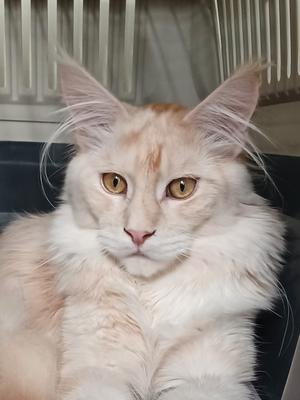Itchy Skin In Cats
Itchy skin in cats. This problem is common, but very frustrating because it's often so hard to find the cause. Often, even with proper veterinary care, pet owners end up trying various remedies and ointments to relieve the symptoms.
It's hard to see our beloved feline family member scratching, digging and itching themselves when we don't know why.
What Causes Itchy Skin in Cats?
Some of the things your vet will look for include:
Parasites: Fleas, mites, lice and ticks all cause skin irritation and are common culprits. Depending on the time of year, this may be likely.
Allergies: Just like people, our feline friends can develop allergies too. They can be allergic to food ingredients, pollen, dust, mold, and insect bites. My Alice was allergic to flea bites (we had them once, for a short time) which caused her skin to break out terribly.
Along with itchy skin in cats, some other symptoms include sneezing and runny or watery eyes.
Skin infections: Fungal, bacterial, or yeast infections can cause itchy skin and other symptoms.
Changes in the environment: Trying out a new shampoo or grooming product cat cause dry, itchy skin. Dry indoor winter air can also be an environmental factor.
Hormonal imbalances such as an overactive thyroid or adrenal gland can cause itchy skin and other symptoms.
Behavioral issues: In some cases, a cat will over-groom, or excessively groom in response to stress or anxiety. This can irritate the skin, causing them to pay even more attention to the area.
Potential Complications
If itchy skin in cats is left untreated there are a few potential complications to look out for. These include:
Infection from skin damage: If a kitty won't leave the spot alone, it can lead to skin damage, scabs and open sores which may become infected.
Hair loss: Excessive grooming and scratching at irritated skin can cause hair loss which is distressing for pet parents to see in longhaired breeds.
Behavioral changes: If left untreated, itchy skin can become so uncomfortable that kitty becomes further anxious and stressed. This can lead to behavior problems such as aggression, moodiness and even litter box problems.
Poor nutrition: Another way cats respond to pain and discomfort is to stop eating as well or as much as usual. This can result in malnourishment, which can lead to more even more health problems.
Maine Coon Cat With Itchy Skin:
Laurie in Ottawa, ON, Canada asks:
My absolutely adorable Aslan started scratching, licking and biting, non stop, unless sleeping.

It's to the point of bleeding and hair loss. He has been tested for parasites (all clear). No sign of fleas but treated with revolution as a cautionary measure.
For the itching, Apoquel has been prescribed. Now 3rd day, still a huge issue. Any one have any home remedies for itching until we can get back to his vet?
Any info would help.
Thank you
Reply:
Hi Laurie, oh my goodness, what a stressful problem! I hope your vet is able to find the cause, in order to give gorgeous Aslan a relief from his discomfort.
Is he targeting one particular part of his body, or is it an all-over itch?
In the meantime, here are a few ideas for natural home remedies for itchy skin in cats:
A soothing oatmeal bath: A warm, but not hot bath with some colloidal oatmeal added may calm irritated, itchy skin.
Moisturize with coconut oil: You can try dabbing a small amount of coconut oil on the inflamed spots. Coconut oil penetrates the skin efficiently and is known to relieve dryness and prevent itch. Start with a small amount, because although it is safe for cats, it has a high fat content.
Vitamin E is safe and beneficial for cats: You can break open a vitamin E capsule and apply the oil straight to irritated skin.
I have early memories of my mom doing this for me (I think after a sunburn) and I can attest to it's skin calming effects.
Vitamin E is a fat-soluble vitamin which benefits a cat's immune system and red blood cell formation. I would recommend checking with your vet regarding how much is safe, since his cat food contains it as well.
Some people use apple cider vinegar as a home remedy since it does have conditioning properties. I don't recommend it, though, since it can sting any broken skin. Also, cats will lick it and may ingest a small amount. Although it's not toxic, it can alter their body's ph balance.
Another natural remedy for skin irritation that I don't recommend is aloe vera, or true aloe from a plant or package. True aloe is toxic to cats and can cause vomiting, diarrhea, lethargy and tremors.
The topic of excessive grooming and itchy skin in cats comes up here from time to time, so I hope others will comment and share their experiences and the remedies that worked for them!
Update by Laurie:
Thank you soooo much for your comments. After 2 visits to emergency. Aslan is on the way to a full recovery.
Update: Unfortunately Aslan lost some hair and has to start over with his mane. It was an allergy to food. Got rid of all old food and treats. Start over with a clean slate. He is now on Hills z/d for food sensitivities.
Drugs included steroids, prednisolone (severe itching) and gabapentin for anxiety. He is no longer scratching and his appetite is better too. Loves his new food.
Thank you to everyone that replied. Final thought. FYI, I did apply very little Vit E from a gel capsule. Also worked well. The vet said his hair will grow back, don't worry, and sure enough it is.
Comments for Itchy Skin In Cats
|
||
|
||
|
||
|
||
|
||

